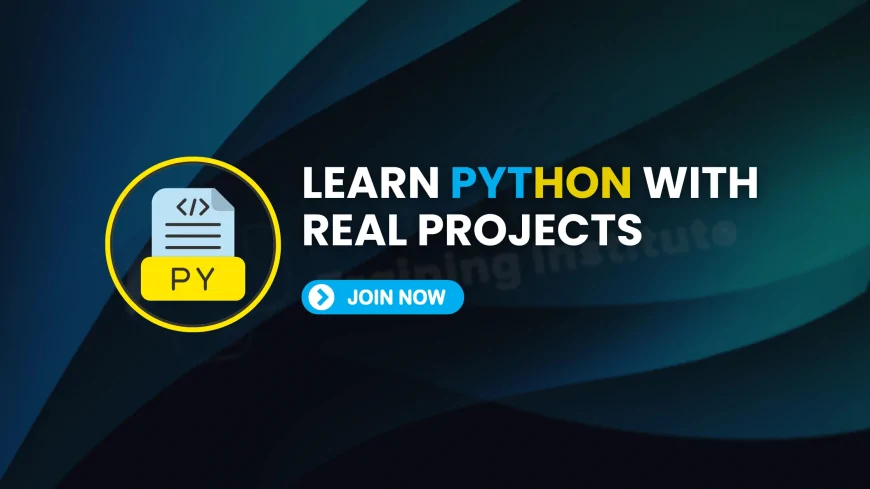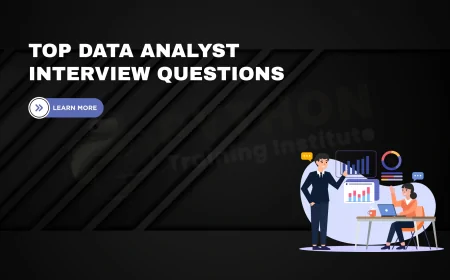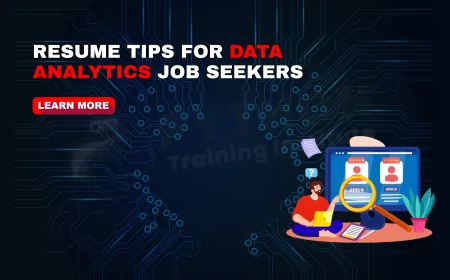Learn Python by Building Real Apps in Pune | Python Programming with Live Project Work in Pune
Join Python courses in Pune to build real-world apps. Gain hands-on experience in web development, automation, and project deployment.

Table of Contents
- Introduction
- Why Learn by Building Real Apps?
- Core App Development Skills
- Top Python App Training Institutes in Pune
- Sample Real-Life App Projects
- Learning Formats & Duration
- Placement & Career Outcomes
- Community & Local Support
- Fees & ROI Analysis
- Tips for Choosing the Right Program
- FAQs
- Conclusion
Introduction
Learning Python becomes truly valuable when you build real-world applications. Pune’s tech ecosystem offers hands‑on training that goes beyond theory, enabling learners to develop full-stack web apps, data tools, and automation scripts—making them job-ready or client-ready from day one.
Why Learn by Building Real Apps?
- Applied Learning: Hands-on coding deepens understanding of Python frameworks and libraries.
- Portfolio Power: Real app projects build demonstrable proof of skills.
- Industry-Aligned: Learning frameworks like Django and Flask mirrors current job needs.
- End-to-End Experience: Building, deploying, and maintaining apps teaches software lifecycle.
- Confidence: Building a project from scratch builds coder confidence and troubleshooting ability.
Core App Development Skills
| Skill Area | Key Concepts | Why It Matters |
|---|---|---|
| Python & OOP | Python 3 syntax, classes, file handling | Clean, maintainable code |
| Web Backend | Flask or Django, REST APIs, routing | Build functional web services |
| Frontend Basics | HTML, CSS, JavaScript, Bootstrap | User interface for your apps |
| Databases | SQLite/MySQL/PostgreSQL, ORM frameworks | Persistent data storage |
| Automation & Tools | Selenium scraping, cron schedulers, CSV/Excel | Automate tasks for real use cases |
| Deployment | Docker, Heroku, AWS, CI/CD | Put your app online |
Top Python App Training Institutes in Pune
-
Webasha Technologies – Python full-stack developer training with hands-on real application development (6–8 weeks), certification on completion, and strong placement assistance support.
Sample Real-Life App Projects
- To‑Do CLI/GUI App – Local storage, file ops, UI generation via Tkinter or command-line menus :contentReference[oaicite:10]{index=10}.
- E‑Commerce Website – Product catalog, cart, payment integration, user auth via Django/Flask :contentReference[oaicite:11]{index=11}.
- Password Manager – Secure storage with encryption and file handling :contentReference[oaicite:12]{index=12}.
- Hospital Patient App – CRUD operations and backend API for patient data :contentReference[oaicite:13]{index=13}.
- Web Scraper + Automation – Selenium to scrape content and generate scheduled CSV reports.
Learning Formats & Duration
- Intensive Bootcamps: 4–10 week focused programs (e.g., Apponix).
- Extended Live Courses: 4–6 months with weekly sessions and projects (3RI, CNC).
- Hybrid Online/Offline: Envision and ACTE blend webinars, labs, and hack-sprints.
- Self-paced + Mentorship: Pre-recorded videos + live code reviews.
Placement & Career Outcomes
- Guaranteed/Assured placement available at Apponix and CNC.
- Average placement package ~₹5–9 LPA post-training :contentReference[oaicite:14]{index=14}.
- CNC offers unlimited mock interviews and HR guidance.
- Many graduates receive internship-to-full-time offers.
Community & Local Support
- Pune Developer’s Community holds weekend coding meetups—ideal for app sharing :contentReference[oaicite:15]{index=15}.
- Active Python/Django groups meet monthly for workshops and hackathons.
- Reddit threads recommend self-learning via online courses; hybrid classroom adds discipline :contentReference[oaicite:16]{index=16}.
Fees & ROI Analysis
| Institute | Course Type | Duration | Fees (INR) | Includes |
|---|---|---|---|---|
| Webasha Technologies | Full-Stack Python with Projects | 8–12 weeks | ₹18,000–₹28,000 | Certification, placement, real apps |
Most learners recover costs through jobs, freelancing, or internships within 1–3 months due to in-demand full-stack skills.
Tips for Choosing the Right Program
- Prioritize institute with live real-app projects in curriculum.
- Verify sample code repositories and deployed demo apps.
- Ask for placement stats—average salary, hiring partners.
- Attend a demo session or talk to alumni.
- Consider batch timing—full-time for fast learners, part-time for working professionals.
FAQs
1. Why is building real apps better than tutorials?
Projects require combining skills—frontend, backend, database—mirroring real job requirements.
2. How long before I can build my first app?
Bootcamps like Apponix help learners build basic apps in 5–10 weeks.
3. Do I need prior coding experience?
No—many courses start from basics and progressively build app logic.
4. Which frameworks are most important?
Django and Flask are vital for backend development and REST APIs.
5. Will I learn deployment?
Yes—deployment to Heroku, AWS, or Docker containers is included in most full-stack courses.
6. What is the cost-benefit ratio?
With average placements around ₹5–9 LPA, most installations recoup course fees in under 6 months.
7. What batch type should I choose?
Choose full-time if you can focus intensively; part-time is ideal if working or studying.
8. Are these apps deployable to production?
Yes—most courses require you to deploy projects live and maintain them.
9. Do institute certificates matter?
Yes—verified completion and placement data can be included on LinkedIn and resumes.
10. Can learning these help me freelance?
Absolutely—web app development and deployment skills are high-demand freelance services.
11. Will I get community support?
Pune has active coding meetups and GitHub groups, which many courses encourage participation in.
12. What is average class size?
Typically 15–30 students, ensuring personalized mentorship and group projects.
13. How important is project quality?
High-quality projects with documentation show depth—choose courses emphasizing code review.
14. Do they teach database skills?
Yes—ORM and SQL/NoSQL integration are core parts of full-stack Python apps.
15. Are front-end skills included?
Basic HTML, CSS, and JS are taught to ensure UI-integrated Python apps.
16. What if I miss a session?
Institutes like ECTI and 3RI often provide 24×7 lab access and recorded sessions.
17. Can I shift from job to full-time learning?
Yes—bootcamps and weekends are designed for career upskilling with flexible schedules.
18. Do I need a GitHub for completion?
Yes—most placements require a GitHub portfolio of real apps.
19. What support is there post-course?
Placement support, interview prep, code reviews, and sometimes alumni mentoring are provided.
20. How to choose between these institutes?
Compare curriculum (projects, deployment), placement stats, session formats, and demo experiences.
Conclusion
In Pune, learning Python by building real applications—rather than just consuming tutorials—offers the fastest path to job-readiness and confidence. Institutes like Apponix, 3RI, ECTI, ACTE, and CNC Web World deliver structured learning, hands-on projects, and strong placement support. Paired with community meetups, this approach equips you to build, deploy, and maintain full-fledged Python apps, making you a strong candidate for employers or freelance clients. Start constructing real apps today—you'll thank yourself tomorrow.
What's Your Reaction?
 Like
0
Like
0
 Dislike
0
Dislike
0
 Love
0
Love
0
 Funny
0
Funny
0
 Angry
0
Angry
0
 Sad
0
Sad
0
 Wow
0
Wow
0
















